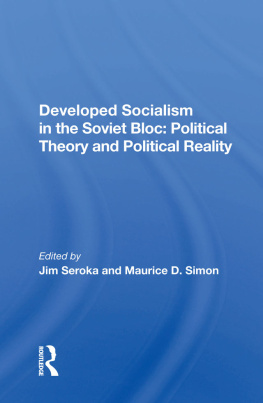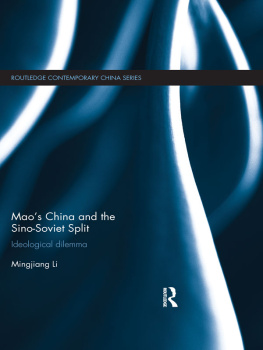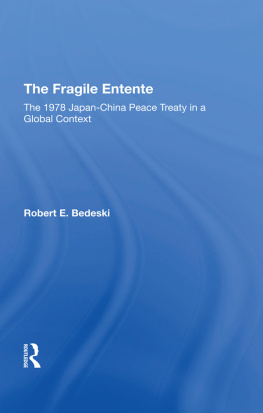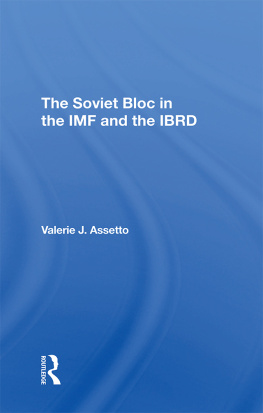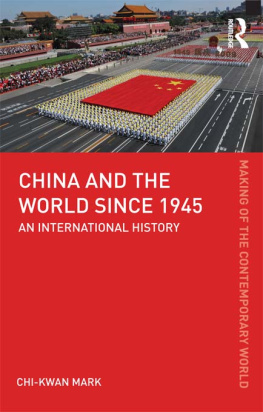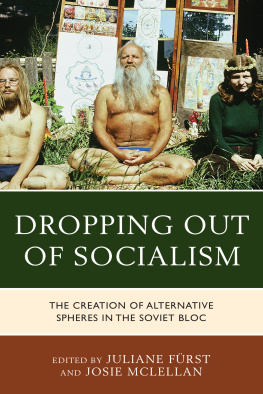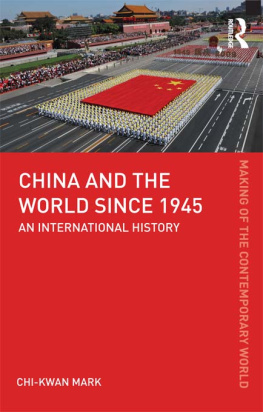The paper in this book meets the guidelines for permanence and durability of the Committee on Production Guidelines for Book Longevity of the Council on Library Resources.
Preface
The specter of an emerging alliance of Russia and China in response to American unilateralism and hegemony in the wake of the collapse of the Soviet Union has attracted the attention of numerous observers of contemporary international affairs. The new strategic partnership, as it was called in the 1997 Treaty of Good Neighborliness, Cooperation, and Friendship, has since then featured border agreements, the growth of small-scale trade, arms sales, joint military exercises, exchange in the strategic and sensitive area of natural resources, and the emergence of the Shanghai Cooperation Organization. The two countries again share common suspicions about America, the presumed maker and beneficiary of a unipolar world, and its promotion of NATO expansion, preventive war, the campaign in Iraq, and the abrogation of the 1972 Anti-ballistic Missile Treaty. Both countries are especially sensitive about what they perceive as intrusive American criticism of their supposed human rights violations. The lofty rhetoric and complicated practices of proletarian internationalism belong to the past.
The study of this past required fellowship support, advice, and intellectual camaraderie from a wide variety of institutions, friends, and colleagues, and I am grateful to have the opportunity to recognize some of them here. I began research on this project a decade ago, but it occupied some corner of my imagination many years before then. As part of an exchange between St. Olaf College and East China Normal University, I taught English in Shanghai in 198687, where I had the opportunity to meet many Russian-speaking Chinese with distant memories of their experiences in the Soviet Union in the 1950s. As a graduate student at the University of Michigan and at the University of California, Davis, I was fortunate to learn about Chinese history and politics from Kenneth Lieberthal, Michael Yahuda, Donald Price, and Kwang-Ching Liu. More recently, I started archival work in Russia in the spring of 2004, with the support of the American Councils on International Education, and continued archival work in Moscow, Prague, Vladivostok, Berlin, and Beijing with additional support from the Fulbright Program in the Russian Federation, the Fulbright Program in the Czech Republic, the National Council on Eurasian and East European Research, the Old Dominion University Faculty Leave Program, and the ODU Summer Faculty Research Program.
This list of those I wish to acknowledge and thank is surely incomplete, but let me start with Karolna imnkov, Pavel Baudisch, and Ji Bernas of the National Archive in Prague; Zuzana Pivcov of the Central Military Archive in Prague; the highly professional archival workers of the Russian Federation; Sylvia Grfe of SAPMO in Berlin; the International Department of Far Eastern Federal University in Vladivostok; Anthony Koliha, Marina Bezrukova, Valentina Gruzintseva, Hanna Ramboukovska, and Muriel Joffe of CIEE and the Fulbright program; Graham Hettlinger of American Councils; Dean Charles Wilson, Vice Provost Chandra DeSilva, and former Department of History chair Annette Finley-Croswhite of Old Dominion University; Cui Yan of Beijing University; Dean Guo Yingjian of Minzu University of China in Beijing; Michael Carhart, Martha Daas, Kurt Gaubatz, Jin Hailstork, Maura Hametz, Erin Jordan, Lorraine Lees, Jane Merritt, Katerina Oskarsson, Kathy Pearson, Heidi Schlipphacke, Steve Yetiv, and Ren Zhongtang of Old Dominion University; Toma and Marketa Reiner in Prague; Lola Rakhimbekova and Elena Larina in Moscow; Detlef Pohontsch in Berlin; the Kuhn family in both Norfolk, Virginia (Sebastian and Kathrin), and Berlin (Susanne); and Zhihua Shen, Dai Chaowu, Ron Suny, Rex Wade, Willard Sunderland, and Brantly Womack. Conference presentations and seminars highly useful to the evolution of this book included those organized by Eric Lohr and the Russian History Workshop at Georgetown University; Charles King and the Center for Eurasian, Russian, and East European Studies of Georgetown University; Maura Hametz and the Associates Writing Group at Old Dominion University; Yoko Aoshima and the Davis Center for Russian and Eurasian Studies of Harvard University; and Priscilla Roberts and the University of Hong Kong. I am grateful to Christian Ostermann of the Cold War International History Project for making possible my participation at this last event, dedicated to Maos China, Non-communist Asia, and the Global Setting, 19491976. In Hong Kong I was fortunate to meet Sergey Radchenko and Qiang Zhai, both of whom were extremely helpful and insightful readers of an earlier draft of this book. My thanks to them and to Yafeng Xia for encouraging me to go to China for research, and to work in the Ministry of Foreign Affairs archive in Beijing in particular. I am especially grateful for the scholarly inspiration and intellectual encouragement provided over the years by Odd Arne Westad. It was an honor to work with a series and a press that has taught me so much about the Cold War, and I am grateful for the insight and hard work of Chuck Grench, Sara Jo Cohen, Alison Shay, Paula Wald, Alex Martin, and their colleagues at the University of North Carolina Press.
My deepest thanks go to my familymy parents, Paul and Marilyn Jersild; my children, Annika and Kira; and my wife, Heather. I was fortunate to have my father read an entire draft of this book, part of an ongoing conversation that extends back as far as I can remember. Annika and Kira are especially brave, and they taught both of their parents quite a bit about the virtues of resilience and flexibility in response to the challenges of travel and dislocation. And finally, this book is dedicated to Heather, whose spirit of adventure and curiosity has inspired not just this book but so much more in our shared lives.


